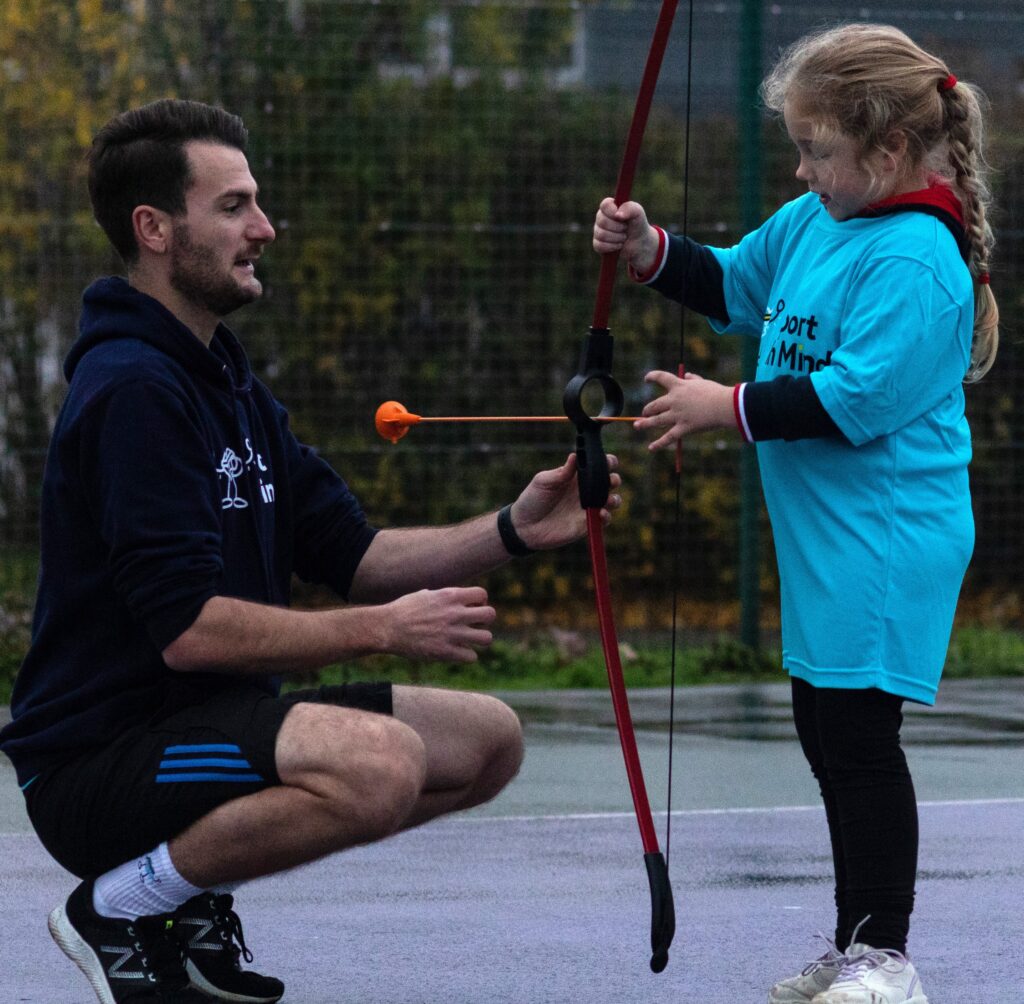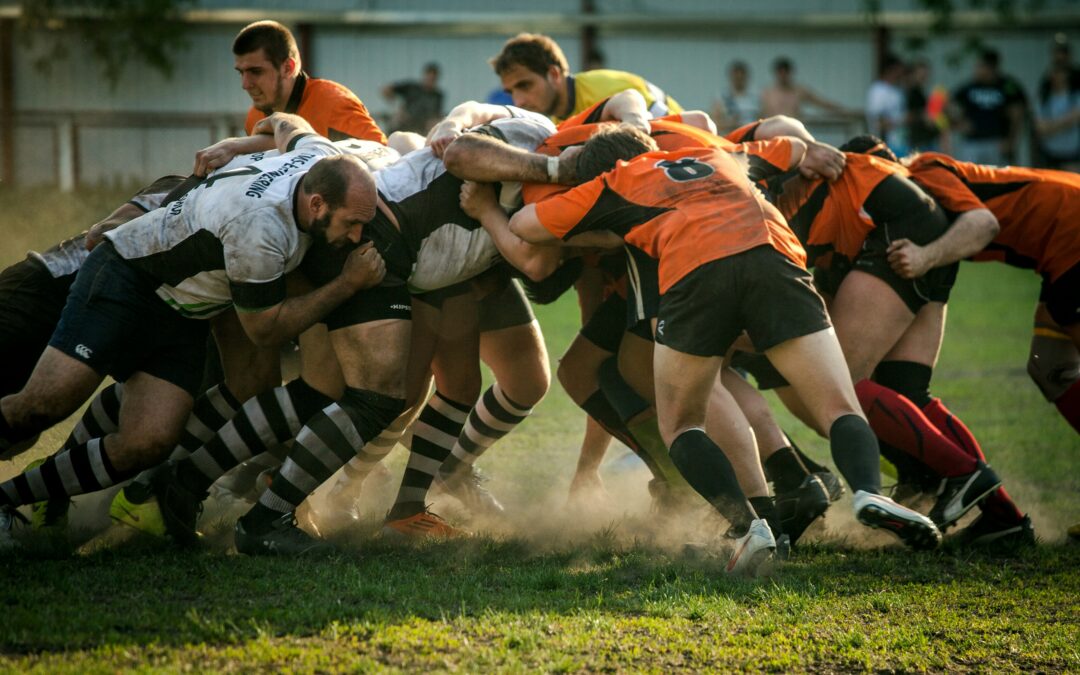From tackling stigmatising language in the media to filling gaps in care for those struggling, there is a team off the field working to improve mental health in sport. In Volunteers’ Week, Sidelines spotlights the work of Sport in Mind.
Mental health within sport is increasingly being spoken about, but many people still suffer in silence or fall through the cracks of existing care. One charity aiming to reduce this is Sport in Mind.
The charity was set up by Neil Harris in 2010. ‘Jamie’, one of his friends, couldn’t leave the house, struggling with severe mental health issues.
Neil created a plan to get him out of the house and back feeling better in himself.
Shaun Matthews, volunteer manager at Sport In Mind, says “It started as basic as getting him to walk up the garden path, then it built up to a walk to the bus stop and then eventually, after a lot of time they managed to get to the local field and have a kick about.”
What followed was a simple idea that quickly turned into something bigger. Following Neil’s realisation that there wasn’t a service out there using sport to improve people’s mental health, he took it into his own hands.
After starting as a simple football session, Sport in Mind is now the leading sports mental health charity in England and Wales.
Today the charity runs sporting sessions in 160 different locations, helping over 31,000 people with mental health issues. Their programs cater to all ages and abilities, offering activities like yoga, football, walking, and swimming.
The connection between sport and mental health isn’t just a theory at Sport In Mind; their core belief is that they are intrinsically linked.

Jonathan Collinge, culture and change manager at Sport In Mind, says: “We all have very stressful lives, when you actively go and play sport… your mind is able to wander.”
He explains that sport helps to take people out of their heads, even for a short amount of time. The statistics speak for themselves, with 94% of their participants reporting improved mental wellbeing.
“We firmly believe that being active… actually does help you physically and mentally to be a stronger person,” Jonathan says.
“You see people who go from a little bit reserved, a bit unwell, to growing in confidence week on week, you can just see that noticeable change,” Shaun adds.
The charity caters to all ages, genders and sporting preferences. From football to gardening in allotments, the mission is simple: “to transform the nation’s mental health through sport.”
Priding themselves on consistency, Sport In Mind believes the process shouldn’t have a timescale.
“Some of these social impact things… you may get funding, say, for a 10 week session,” says Jonathan. “Somebody with mental health might take four or five weeks to get out of their house.
“They have then only got six left and they are finished.”
This is where Sport In Mind feel they fill an important gap in UK healthcare.
“We never turn anybody away… we’re there all the time for people with mental health,” Jonathan says. “It’s not just for a very short period of time… it is the continuity.”
Mental health stigma in sport
Though important conversations about mental health in sport are starting to break through, the stigma hasn’t disappeared.
“I think there is still a lot of work that can be done,” says Shaun. “I still don’t feel like it’s a complete safe space for a professional footballer.”
The media has a role to play in reducing that stigma. Sport in Mind found that 91% of people living with mental health challenges said they were negatively impacted by harmful language around mental health in the media, and have launched a campaign called ‘Mad Headlines’ to counter this. The campaign, supported by ambassador Anton Ferdinand as well as organisations such as the Campaign Against Living Miserably, gets organisations and individuals to pledge to reduce or eliminate their use of stigmatising language. Over 200 organisations have signed up.
“To some people they may think it is just a turn of phrase, but to some people that are struggling, it can be quite harmful and impactful,” Shaun says.
Support for all
The charity aims to be as inclusive as possible. Their sessions are free to attend with no referral needed from the NHS.
“It’s not who can do the quickest 5K,” says Shaun. “It is almost running with the person who is doing the slowest 5K and including everyone.”
The spread of age ranges across all sessions shows how important the charity is and the issue it aims to address – and that crucial support is all made possible by the volunteers who greet, help out or simply show up and listen.
“Without them our jobs would be so, so much harder,” Shaun says. “We couldn’t do half the stuff that we can do.”
Sport in Mind doesn’t aim to ‘fix’ people. It is about showing up, and providing a space where others are inclined to do so.
“We don’t mend people,” Jonathan says. “We are not doctors or psychiatrists… what we do is we are able to signpost people to the right people.”
And sometimes that is all someone needs.
If you have been affected by mental health issues and are looking for more information, visit the Sport in Mind website for more information about the services Sport in Mind offer.

Sidelines Recommends

From the scrum to the sidelines: Tom Woolstencroft exclusive
Sidelines spoke exclusively to ex-Saracens front-rower Tom Woolstencroft about the challenges of switching from player to coach.

The “unforgettable experience” of the Wimbledon Queue
Combine queueing and Wimbledon, and you get the most British experience possible – but none of it would be possible without the stewards.

“Fierce and feminine”: the women changing F1 on and off the track
Shannon Tobin’s journey from racing novice to working for a top F1 team shows how women are steering the future of motorsport.




